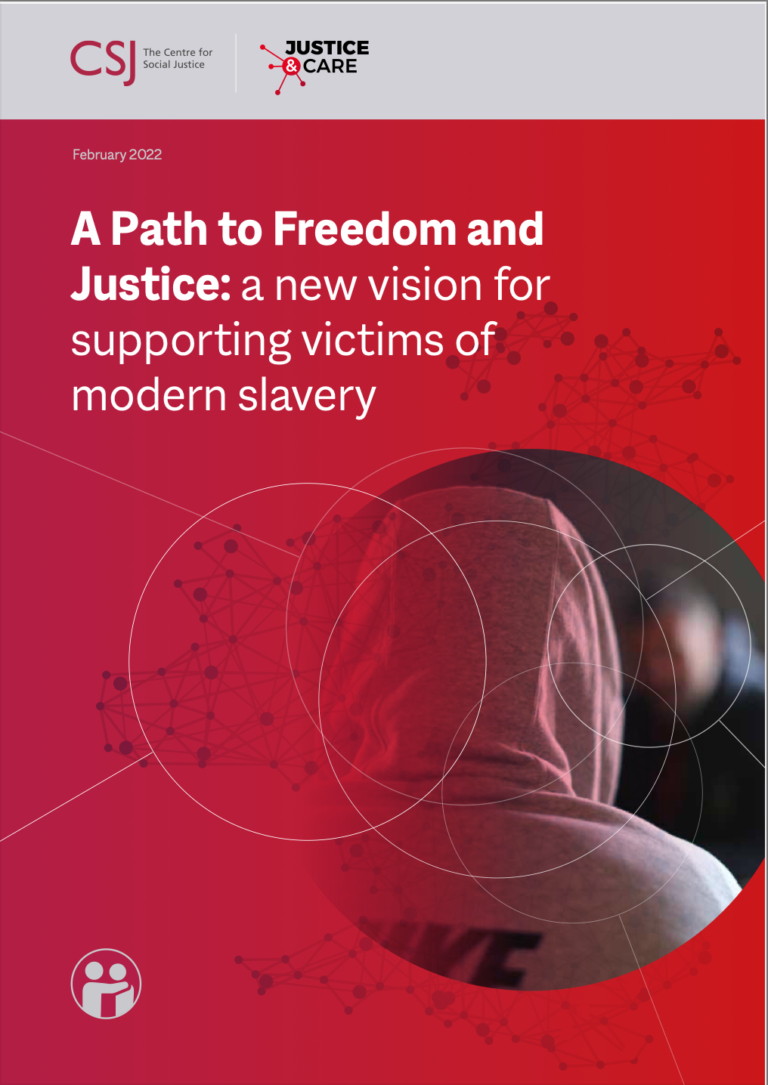Nearly seven years after the Modern Slavery Act was passed, organised crime networks behind modern slavery are continuing to act with impunity costing the UK billions of pounds. In It Still Happens Here, our report published in 2020, we estimated there could be at least 100,000 victims in the UK – 10 times the number referred to the National Referral Mechanism (NRM) for support that year. This is potentially costing this country £32.9 billion a year.
The imperative to stop slavery gangs in their tracks could not be clearer, yet prosecution rates remain low. The National Crime Agency estimates there are at least 6,000-8,000 offenders involved in modern slavery in the UK. But in 2020, there were only 91 prosecutions and 13 convictions for modern slavery offences as the principal offence, and only 344 prosecutions and 56 convictions for modern slavery offenders overall. Victim testimony is key to unravelling slavery networks, but too often cases are dropped due to lack of victim engagement.
As we set out in our 2020 report, good care for the exploited and abused is not a luxury extra – it unlocks progress against organised crime. Those exploited and abused on British soil, whether UK citizens or foreign nationals, deserve care and a chance to recover. They also often crave justice. Failure to support survivors increases re-trafficking rates and hinders our ability to dismantle the criminal networks responsible because their vital intelligence is lost.

